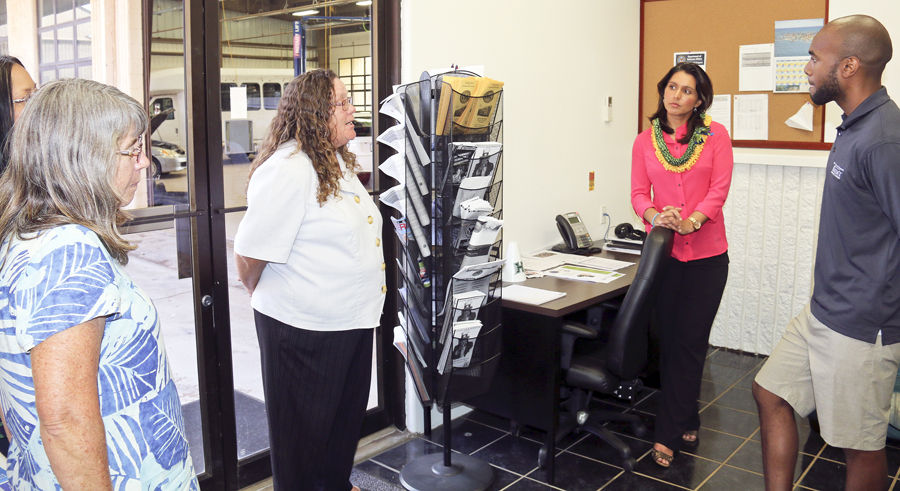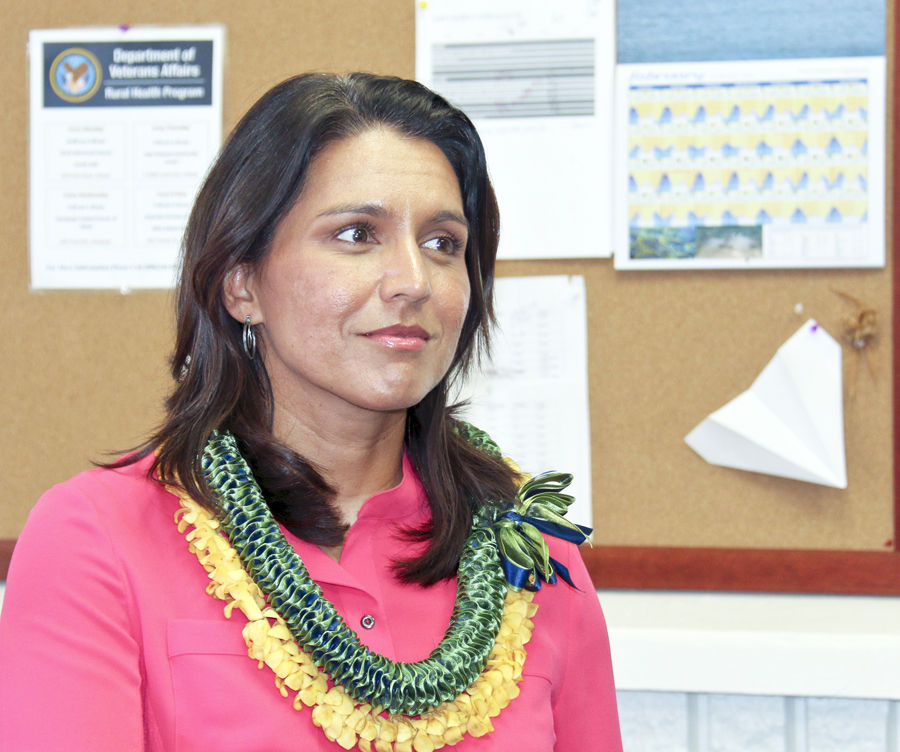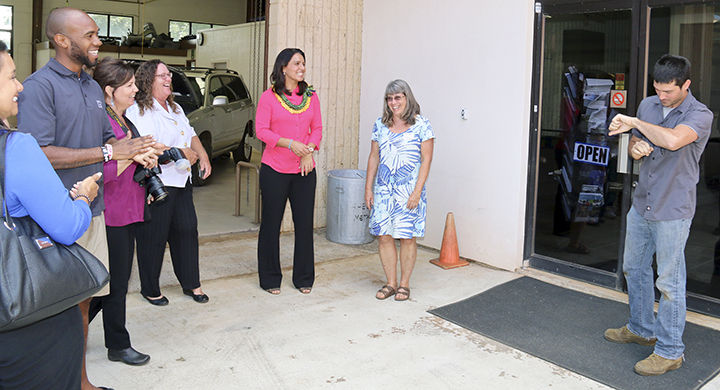PUHI — Kauai Community College’s new Veterans Support Center is up and running.
“It’s good because veterans like to talk to other veterans, and sometimes it’s hard with a small school,” said Foster Brown III, a combat veteran and one of four student employees at the center.
Brown is originally from Chicago and joined the Air Force at age 19. After being stationed at Hickam Air Force Base on Oahu, his first taste of Hawaii, he deployed to both Iraq and Afghanistan. Today, he is finishing a degree in liberal arts at KCC, working at the center several days a week and plans to continue his education with a degree in computer technology.
In addition to offering a quiet place to study and socialize, Brown said the VSC, which first opened its doors in September, supports vets by guiding them to available resources, both on- and off-campus.
“It’s been a lot of help for a lot of the veterans who are utilizing it so far,” he said.
One of them is Morgan Fergerstrom. Despite his age, the 61-year-old vet recently decided to go back to school. After finishing his prerequisites, he plans to enroll in KCC’s automotive technology program.
Right now, he said, it’s study, study and more study — which he admits hasn’t come easy. But when time allows, he visits the support center.
Fergerstrom said there are a lot of vets who are shy or afraid to ask for help. Some are homeless, like he once was. Others have turned to drugs and given up.
However, there are resources, including the KCC center, for those looking to improve their lives.
“It’s up to you if you want to, you know, go out and better yourself,” he said.
Brown and Fergerstrom were among a number of veterans and staff at KCC Tuesday who met with U.S. Rep. Tulsi Gabbard and provided her with a tour of the facility.
Gabbard, an Iraq War vet, said communities, especially in Hawaii, are all different, and that a one-size-fits-all approach to veteran services does not work.
“It’s great to see what you guys have done here, because this is something that I would say is needed in each of the different campuses in the university system,” Gabbard said. “But really, we’re not seeing, you know, people who have done as much as you have here.”
Dawn Wooten, special services support coordinator at KCC, said the center features computers, a lounge for vets to get to know one another and study, wireless Internet and a rack of fliers with information about services available across the island. Most importantly, however, are the veteran student employees who build trusting relationships and help answer questions, she said.
So far, VSC has seen an average of 10 people come through per week, most with questions about medical or other benefits, enrolling in school, counseling and other assistance, according to Brown.
The Veteran’s Support Center is paid for by a $26,500 grant from the Department of Labor through the ‘s Rural Hawaii 1 Project. It is open from 8 a.m. to 4 p.m. Monday through Friday and located on the far northwest side of the KCC campus, between the welding and technology buildings.
“It’s places like this that create a safe and friendly environment for people to come in and not feel judged or, you know, just to come and hang out with friends and talk story,” Gabbard said.
The center will celebrate its opening with a free barbecue Feb. 27 from noon to 2 p.m.
Gabbard’s afternoon on Kauai also included a meeting with Ho’ola Lahui Hawaii and a tour of the Kauai Community Health Center, where she discussed and learned more about the Native Hawaiian Health Care System.
She finished her trip with a speech at a free public viewing of “Still Serving,” a documentary film about empowering and employing Kauai veterans who are returning from war.
Gabbard said the movie is both powerful and compelling.
“This is a story of the people of this place, who went out and served their country, came home, and who still are going through a transition, at one level or another,” she said. “You can watch movies like American Sniper, and you can understand and experience that story from a different perspective. But it’s different when you hear about people who maybe were your friends or neighbors, or who you went to high school with. Or maybe you were friends with their parents, or whatever the case may be. And I think that’s really where I see such power in this film.”
The takeaway message, she added, is really about the contribution and value that veterans have made and continue to make in our communities.
•••
Chris D’Angelo can be reached at 245-0441 or cdangelo@thegardenisland.com.




